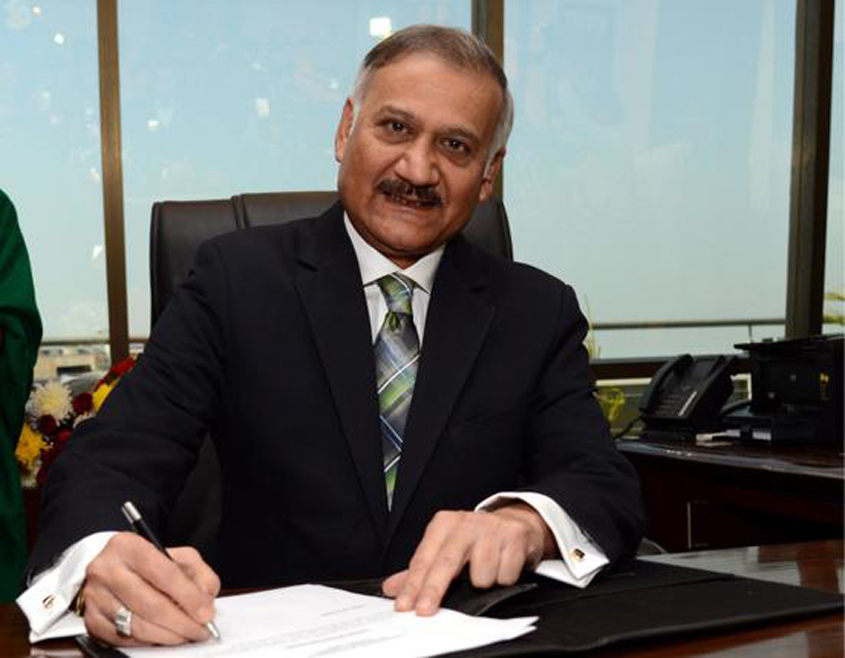The race is on for the post of Central Bureau of Investigation director, as the tenure of incumbent Anil Sinha ends on 30 November. If sources aware of the developments are to be believed, the choice of the new chief will be decided from among five-six individuals, including two female officers.
Among the names being considered is the 1981 batch IPS officer, Rupak Kumar Dutta, who has been working with the agency since July 2015 as a special director and is the senior most CBI officer. He has emerged as the strongest contender owing to his familiarity with the workings of the agency. That he is not too much into political networking is working in his favour.
Delhi police commissioner Alok Verma’s name is also in the reckoning and sources say he has a strong chance as he has handled his present profile with “silence” unlike his predecessor Bhim Sen Bassi. Verma’s image as an honest, no-nonsense officer is likely to boost his chances and if sources are to be believed, Delhi police might see a new chief before the end of this year.
The 1980 Tamil Nadu batch Archana Ramasundaram, who is presently the director general of Sashastra Seema Bal (SSB), is also in the reckoning and is getting support from the South Indian lobby. She was earlier appointed as an additional director in the CBI in 2014 due to the efforts of then director Ranjit Sinha, but was suspended by the Tamil Nadu government hours after taking the job for allegedly failing to obtain the consent of the state government before joining. She was later appointed as the chief of National Crime Records Bureau (NCRB).
Two officials from the Maharashtra cadre, Meera C. Borwankar, a 1981 batch IPS officer who is currently director general of Bureau of Police Research and Development (BPR&D), and her batch mate, the director general of Maharashtra police, Satish Mathur, are also trying for the post. Their supporters have been meeting political leaders from various political parties to make a case for them.
Mathur has also worked in the CBI and was a part of the team that was investigating the 1993 Mumbai blasts. He enjoys a good rapport with the leaders who are presently in the opposition.
And there is Krishna Chaudhary, a 1979 batch Bihar cadre officer, who is presently handling the Indo-Tibetan Border Police Force. His supporters are pushing his case.
Two candidates are believed to have met a Union minister on the same day last week to push for their candidature. One of the candidates, who enjoys an age old friendship with the owner of a business house, was in New Delhi recently where he met central leaders from western states.
Many of the aspiring candidates are holding meetings with all those who may influence the decision on the coveted post in their favour. “The choice has narrowed down to six individuals and I will be very surprised if someone other than these individuals replaces Anil Sinha. Even though the present government has a tendency to spring a last minute surprise when it comes to appointments, I am not expecting the same to happen in the case of the CBI chief,” a senior political leader stated.
Anil Sinha, who was the first chief of the CBI appointed by the Narendra Modi government, had a non controversial tenure. His predecessors Ranjit Sinha and A.P. Singh are infamous for their tumultuous tenures.
The National Democratic Alliance government is looking for a candidate who, apart from having the desired credentials, is not controversial and will get along with all NDA leaders, said sources following the developments.
According to the Lokpal Act, the CBI chief has to be appointed by the Central government on the basis of the recommendation of the selection committee headed by the Prime Minister, and comprising the Leader of the Opposition (LoP) and the Chief Justice of India or a Supreme Court judge nominated by him as members.
The Ministry of Home Affairs will send the names of the IPS officers to the Department of Personnel & Training (DoPT) which will then send a panel of such officers formed on the basis of “seniority, integrity and experience in the investigation of anti-corruption cases” to the selection panel, it said. Until 2014, the CBI director’s post was always a political appointment.

